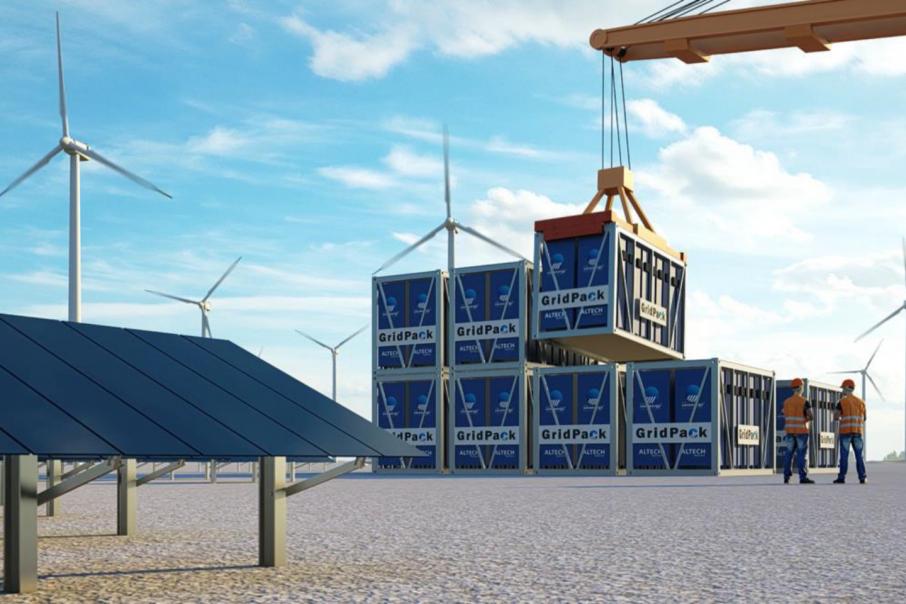Perth-based Altech Batteries has unveiled the design for a new 1 MWh GridPack non-lithium battery energy storage system. It developed it for the renewable energy and grid storage market, as part of its joint venture collaboration with German research organization Fraunhofer IKTS.
The launch of the “plug-and-play” GridPack comes just six months after the two sides signed a joint venture agreement to commercialize Fraunhofer’s Cerenergy sodium alumina solid state battery technology, which relies on sodium ions commonly found in table salt and avoids using rare and expensive metals such as lithium, cobalt, graphite and copper. Altech Batteries said the technology eliminates exposure to critical metal price rises and supply chain concerns. Fraunhofer has estimated that the cost of producing Cerenergy batteries should be about 40% cheaper than lithium-ion batteries, which currently dominate the global energy storage market.
The joint venture is commercializing the sodium chloride battery technology, with plans to construct a 100 MWh production facility on Altech’s land in Germany. It is anticipated that the facility will produce 10,000 individual 10 kWh Cerenergy battery modules every year to provide grid storage solutions to the market.
While the development of the manufacturing facility continues, the companies have now launched the design of the 1.0 MWh GridPack. Each GridPack, to be housed in standard shipping containers, will feature to 20 individual 60 kWh battery packs connected to a power management system. Each unit will have a distinct rating of 600 V (DC) and 100 amp hours and will be able to be arranged in a series to achieve the required rating of several thousand kW for grid functioning.
Altech said the GridPacks are modular and stackable, which reduces their footprint, and have a “plug-and-play” feature that makes them easy to install in remote locations. The company said there are no moving parts such as cooling fans and the batteries can operate in any climate without need for thermal management – a key advantage of sodium-alumina solid state batteries over lithium-ion alternatives.
With a projected lifespan of more than 15 years and unlimited cycling, Altech said it is confident that the technology will become the “preferred choice” for companies seeking a reliable and long-lasting energy storage solution.
“These 1 MWh GridPacks will offer significant benefits for the fast-growing renewable energy and grid storage sectors,” the company said. “They are an excellent means of stabilising the grid by providing a source of backup power during periods of high demand or when renewable energy sources are not producing at capacity. They are also a cost-effective solution for storing and distributing renewable energy across a variety of applications, including grid-scale storage, microgrids, and electric vehicle charging.”
This content is protected by copyright and may not be reused. If you want to cooperate with us and would like to reuse some of our content, please contact: editors@pv-magazine.com.




2 comments
By submitting this form you agree to pv magazine using your data for the purposes of publishing your comment.
Your personal data will only be disclosed or otherwise transmitted to third parties for the purposes of spam filtering or if this is necessary for technical maintenance of the website. Any other transfer to third parties will not take place unless this is justified on the basis of applicable data protection regulations or if pv magazine is legally obliged to do so.
You may revoke this consent at any time with effect for the future, in which case your personal data will be deleted immediately. Otherwise, your data will be deleted if pv magazine has processed your request or the purpose of data storage is fulfilled.
Further information on data privacy can be found in our Data Protection Policy.